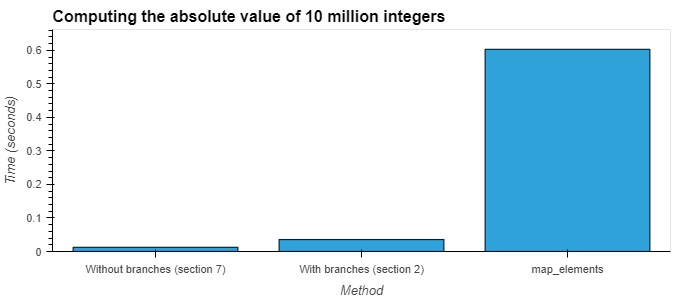7. Branch mispredictions¶
Time to go back to the past. In Section 2, I told you that the
implementation we had of abs_i64 wasn't the most efficient one
you could possibly write. Time to see how to improve it!
Which algorithm do you think would win?
- for each row:
- check if it's null or not
- if it's not null, calculate its absolute value
- for each row:
- calculate its absolute value, even if we don't need it because it's a null row
If you've not come across the concept of branch mispredictions
before, then the answer may surprise you, because the second
one is faster here. This is because .abs is a very fast
operation, and wasting time checking whether each element is null
or not actually slows us down!
Here's how you can make abs_i64 faster:
#[polars_expr(output_type=Int64)]
fn abs_i64(inputs: &[Series]) -> PolarsResult<Series> {
let s = &inputs[0];
let ca = s.i64()?;
let out = ca.apply_values(|x| x.abs());
Ok(out.into_series())
}
For operations more complex than .abs, it may be that computing the operation
for only the non-null values is cheaper. In general, you should
measure, not guess.
If you're just starting out with plugins and only need to beat
.map_elements, then either of these solutions will blow it out
of the water.

Practice!¶
Can you go back and make a faster version of sum_i64?